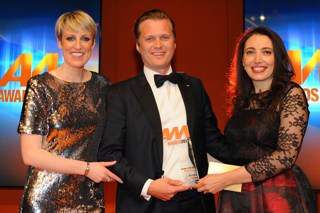Author: David Bailey (pictured), professor of industrial strategy, Economics & Strategy Group, Aston Business School
"Jaguar Land Rover has opened its new assembly plant in China through its joint venture (JV) with the Chinese auto firm Chery.
Over the last few years China has emerged as one of JLR's biggest market. China made up just 8% of JLR’s sales figures back in 2010, but today it is the firm’s single largest market, with 24% of the firm’s global net sales. The market is set to grow rapidly on the back of low premium car ownership levels currently, a growing middle class, and strong consumer demand for premium brands.
Given this, China is expected to become the largest premium car market in the world by 2020, with premium sales of over 3 million cars by then, almost double current volumes. JLR’s own retail sales in China increased by around a third over the last year.
JLR are in fact late entrants to China. Currently, the German premium brands of Audi, BMW and Mercedes-Benz together hold around 75% of the Chinese premium vehicle market, with JLR a distant fourth.
Indeed, Audi sold more cars in China alone last year (nearly 500,000 cars) than JLR managed around the world. JLR itself sold around 110,000 cars in China (out of 425,000 globally) in the year ending May 2014. Even if the Chinese economy slows, there is significant market share to be captured by JLR.
By currently importing all of its cars into China, JLR is subject to heavy import taxes, as well as value added tax and consumption tax, all loading up the price of its cars. The new plant will enable JLR to assemble locally and avoid hefty tariffs.
The new plant is located in the Changshu Economic Development Zone, north of Shanghai, and will be able to build both Chery and Land Rover sports utility vehicles, as well as a possible new brand designed specifically for the Chinese market. The plant will be able to assemble some 130,000 cars and engines a year.
JV deals are essential for foreign firm entry under Chinese regulations if a firm is going to assembly and then sell locally. It’s a key plank of the Chinese government’s industrial policy to build up the domestic industry and reverse engineer technologies.
Global sales of around 1 million by 2020 appears to be the target for JLR, and profits from the Chinese venture should in part go back into R&D here in the UK, thus supporting jobs and developing new models to underpin growth.
It also means expansion is needed in China, India and Brazil – and maybe in North America in due course - as well as back in the UK. New models will be critical as the firm needs to grow in size dramatically while maintaining margins. As JLR Chief Executive Ralf Speth has stated previously, the firm needs to "go where the markets are".
Analysts expect JLR’s car prices to fall by 15% in China once local production is up and running, in turn boosting the quantity demanded. Even so, JLR will still be operating at higher levels of average revenue per vehicle than its German rivals, given that it competes in the higher-end of the premium car segment.
JLR currently has a 6.5% share of China’s premium car market. If JLR grows that to 8% by 2020, and given the estimate of 3m premium vehicles sales a year in China by then, this works out at JLR sales of 240,000 a year in China.
That in turn represents 24% of the JLR’s 1m sales target for 2020, which is equivalent to the proportion of Chinese sales in JLR’s global sales at the moment.
But JLR’s sales in China may well outperform those in other countries over the next few years, given the high levels of demand for premium cars, JLR’s local production, and through its shift into the fast growing compact segment where the new Jaguar XE and future crossover are likely to compete.
If so, JLR could push its premium market share in China as high as 11%, taking share from the likes of Lexus which have yet to embark on local manufacturing. This is entirely possible if the firm gets the products right.
Such a market share could then see China contributing around a third of JLR’s net sales by 2020. That’s how big a deal its drive into China really is."


















Economic Bubbles - 28/10/2014 08:47
What would happen if there was a sudden crash in China? At some stage, there will be a people uprising. Is it good strategy therefore to have so many eggs in this basket. PSA's recovery is very reliant on China. JLR may only sell 25% of it's cars there but rumour has it that these contribute the vas tmajority of the firms profits. Clearly, to be a success, you have to sell cars in China - the market there is huge. But it seems we cannot avoid, time after time, relying on an economic bubble to keep the cogs turning......